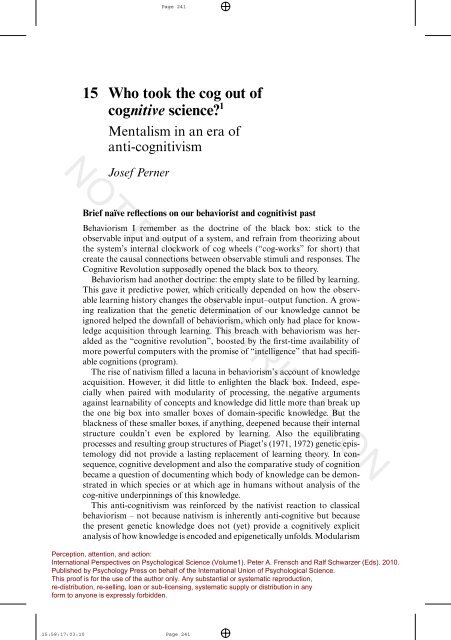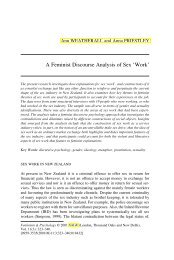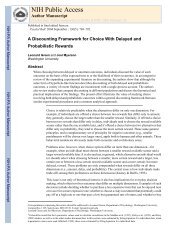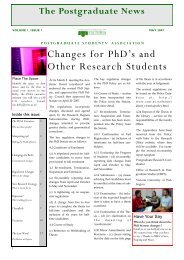Perner 2010.pdf
Perner 2010.pdf
Perner 2010.pdf
Create successful ePaper yourself
Turn your PDF publications into a flip-book with our unique Google optimized e-Paper software.
Page 24115 Who took the cog out ofcognitive science? 1Mentalism in an era ofanti-cognitivismNOT FOR DISTRIBUTIONJosef <strong>Perner</strong>Brief naïve reflections on our behaviorist and cognitivist pastBehaviorism I remember as the doctrine of the black box: stick to theobservable input and output of a system, and refrain from theorizing aboutthe system’s internal clockwork of cog wheels (“cog-works” for short) thatcreate the causal connections between observable stimuli and responses. TheCognitive Revolution supposedly opened the black box to theory.Behaviorism had another doctrine: the empty slate to be filled by learning.This gave it predictive power, which critically depended on how the observablelearning history changes the observable input–output function. A growingrealization that the genetic determination of our knowledge cannot beignored helped the downfall of behaviorism, which only had place for knowledgeacquisition through learning. This breach with behaviorism was heraldedas the “cognitive revolution”, boosted by the first-time availability ofmore powerful computers with the promise of “intelligence” that had specifiablecognitions (program).The rise of nativism filled a lacuna in behaviorism’s account of knowledgeacquisition. However, it did little to enlighten the black box. Indeed, especiallywhen paired with modularity of processing, the negative argumentsagainst learnability of concepts and knowledge did little more than break upthe one big box into smaller boxes of domain-specific knowledge. But theblackness of these smaller boxes, if anything, deepened because their internalstructure couldn’t even be explored by learning. Also the equilibratingprocesses and resulting group structures of Piaget’s (1971, 1972) genetic epistemologydid not provide a lasting replacement of learning theory. In consequence,cognitive development and also the comparative study of cognitionbecame a question of documenting which body of knowledge can be demonstratedin which species or at which age in humans without analysis of thecog-nitive underpinnings of this knowledge.This anti-cognitivism was reinforced by the nativist reaction to classicalbehaviorism – not because nativism is inherently anti-cognitive but becausethe present genetic knowledge does not (yet) provide a cognitively explicitanalysis of how knowledge is encoded and epigenetically unfolds. ModularismPerception, attention, and action:International Perspectives on Psychological Science (Volume1). Peter A. Frensch and Ralf Schwarzer (Eds). 2010.Published by Psychology Press on behalf of the International Union of Psychological Science.This proof is for the use of the author only. Any substantial or systematic reproduction,re-distribution, re-selling, loan or sub-licensing, systematic supply or distribution in anyform to anyone is expressly forbidden.15:58:17:03:10Page 241






